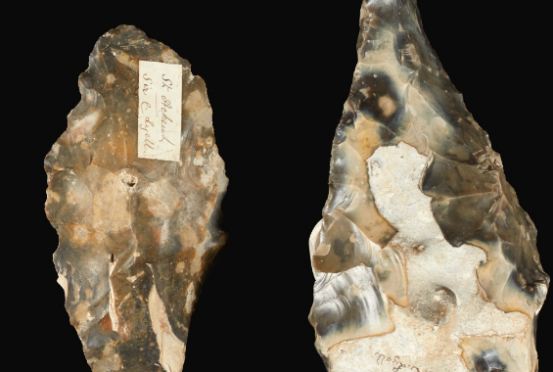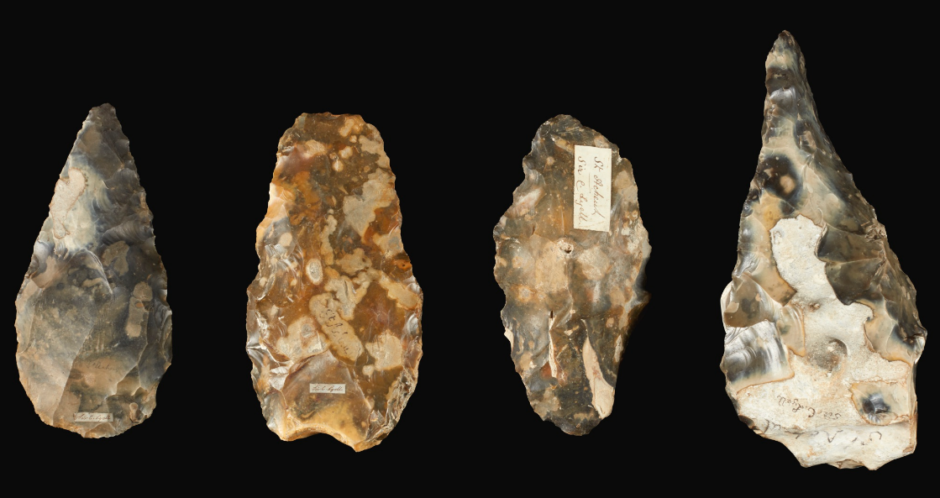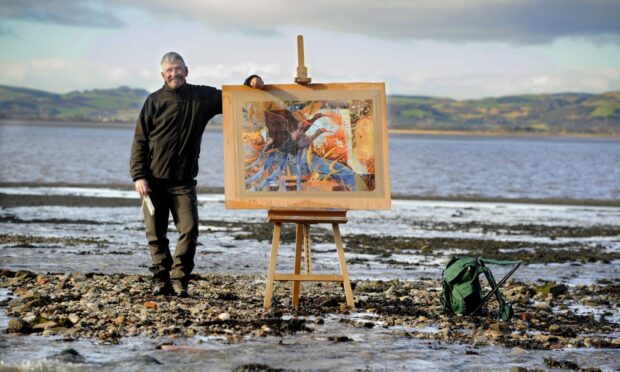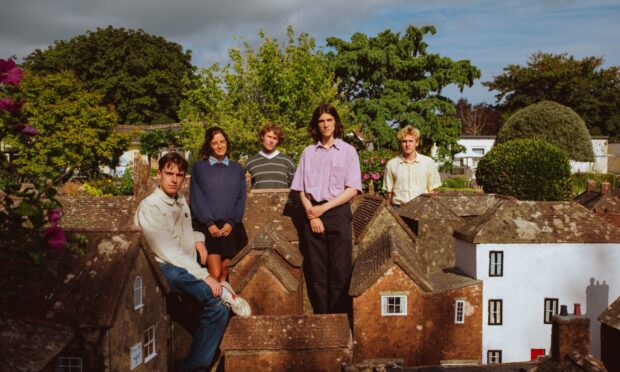It is not unknown for small salerooms to err on the cautious side in estimating lots, which then fly when bidding begins.
It is less common, however, for the big three – Sotheby’s, Christie’s and Bonham’s – to seriously underestimate items.
This happened in spectacular fashion when Sotheby’s took £580,000 for a 32-lot archive relating to the Kirriemuir geologist Sir Charles Lyell and his kin, consigned by the Lyell family.
Lyell’s Principles of Geology (1830-1833) changed scientific thought across Europe. Kinnordy-born, he was credited with showing that all features of the earth’s surface are produced by physical, chemical and biological processes through long periods of geological time. Immensely influential, his encouragement of Charles Darwin helped lay the groundwork for evolutionary biology and his contribution was championed in Darwin’s Origin of Species, which drew heavily on Principles of Geology both in style and content.
Illustrated are four flint Lower Palaeolithic-period hand axes collected by Sir Charles in St Acheul, near Amiens in France. The great antiquity of the stone tools discovered there began to be more widely accepted in the 1850s following parallel findings, and they were considered a great step forward in the understanding of human origins.
Lyell (1797-1875) well understood this and made several trips to St Acheul, collecting more than 100 flint implements while he was researching his book Geological Evidences of the Antiquity of Man, published in 1863. Indeed, Lyell illustrated one of the Sotheby’s axes in The Antiquity of Man.
The hand axes, labelled ‘Sir C. Lyell’ and ‘St Acheul,’, and which are now believed to be up to 500,000 years old, sold for an astonishing £68,750, against pre-sale hopes of just £4000-£6000.











